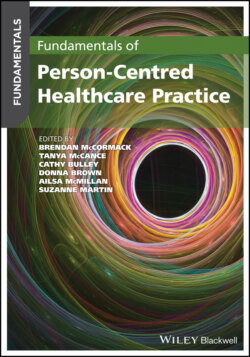Читать книгу Fundamentals of Person-Centred Healthcare Practice - Группа авторов - Страница 27
The reflective person
ОглавлениеThe work of Christian Smith is also important here (Smith 2003). Smith argues that what distinguishes us as human persons from other non‐human persons is that we live within a moral code or framework. This moral code is both inside us (our beliefs, values, desires, motives and feelings) and outside us (societal structures, cultures and processes). Every day, we operate through the lens of this moral code and so control of our actions is not just based on ‘interiority principles’, as Leibing argues. Like other philosophers such as Frankfurt (1989), Smith suggests that as human persons, we have the unique ability to reflect on our moral behaviour and recalibrate our actions if they misalign with the dominant moral code. We need to be aware, therefore, that our personhood is not just shaped by our internal beliefs, values, desires and feelings but also by our culture, which shapes, forms and reforms us on a continuous basis – thus personhood is not a static fixed concept but something that is continuously evolving and developing.
This is a very important point to reflect on in the context of healthcare practice. So much emphasis is placed on people working in healthcare having the ‘right’ moral attitude. Indeed, the standards of professional practice for nurses, midwives and associate nurses (NMC 2015) place significant emphasis on the beliefs, values and behaviours of individual nurses. This perspective reinforces and privileges the ‘interiority’ perspective of Leibing. But what about the culture of the care setting, the team behaviours and practices, the style of management and leadership in operation, the resources available to do the job, and many other elements of organisations that influence our individual effectiveness? To truly be a person‐centred accountable person, we also need to operate in cultures that pay attention to these values – more on this in Chapters 3 and 4.
